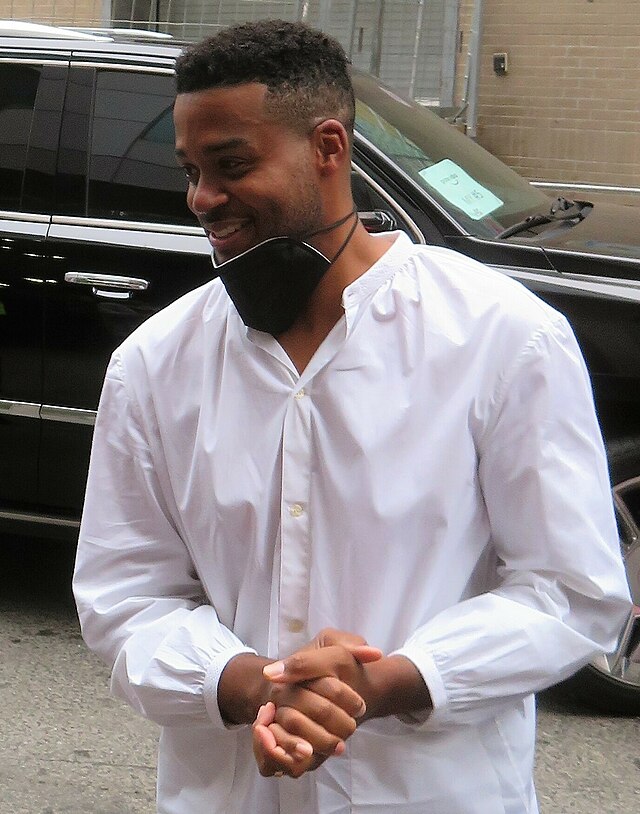
By LESLIE AMBRIZ, AP News
LOS ANGELES (AP) — Kris Bowers grew up in Los Angeles, just a few minutes away from The World Stage performance space, and immersed in jazz. Music, he knew, was always his path.
“I told them (my parents) when I was 12, I want to go to school for jazz and tour as a jazz artist and then transition into film scoring,” the pianist-turned-composer says. “I never had a moment where I thought, ‘Oh, maybe I’ll do something else.’ I was always like, ‘Oh, that’s the path. And like, yeah, I’ll try to figure out how to make it happen.’”
Scarcely two decades after that preteen declaration, the 34-year-old is an Emmy- and Grammy-nominated composer whose resume could fill pages. He’s created moving compositions for prominent filmmakers, including Ava DuVernay and Justin Simien, and Oscar-winning films like “King Richard” and “Green Book.”
This year alone, Bowers has scored Marvel’s “Secret Invasion” series, “Chevalier” and “Queen Charlotte: A Bridgerton Story” (he’s a veteran of Shonda Rhimes projects ), earning him a spot among The Associated Press’ Breakthrough Entertainers of 2023.
Having been nominated once for an Oscar — as a filmmaker, for his short documentary, “A Concerto is a Conversation” — his scores for Blitz Bazawule’s “The Color Purple” and DuVernay’s “Origin” could land him once again at the Academy Awards in March.
Bowers is grateful to the filmmakers who he says have allowed him to explore different styles and genres.
“As a Black composer, I feel like, you know, before those people gave me opportunities, I always had these roadblocks of typecasting. If I wanted to do a certain kind of film, it was hard to get considered for it,” he says, remembering how easy it was for others to only consider him if they needed a hip-hop score.
Now, his close working relationships with artists like DuVernay allow him the freedom to experiment with various blends of sound. His scores ebb and flow seamlessly, from the upbeat, drum-filled tempos of “Space Jam: A New Legacy” to the quirky reimagining of “The Haunted Mansion” to the heart-wrenching soundtrack of “When They See Us.”
I never had a moment where I thought, ‘Oh, maybe I’ll do something else.’ I was always like, ‘Oh, that’s the path. And like, yeah, I’ll try to figure out how to make it happen.’
“I feel like that type of trust and belief is really what has helped me kind of build my career,” he says.
Bowers looked to collaborators and mentors to guide him through navigating Hollywood. His mentality when it comes to composing was inspired by one of those high-profile collaborators: the late Kobe Bryant, with whom he worked on the 2015 documentary, “Kobe Bryant’s Muse.”
“I feel like a lot of my mentality is inspired by him and also like my mentality when it comes to composing was directly inspired by him in that project,” Bowers says.
Throughout his early days of film scoring, Bowers says he felt imposter syndrome, but made it a point to tackle challenging projects.
“What could be seen as confidence was really me being like, ‘I don’t know how to do it, but I’ll figure it out,’” he says. “I feel like the daily process is always trying to figure out the voice inside that’s telling me that I don’t belong or shouldn’t be here.”
The recurring imposter syndrome was central to Bowers’ 2021 Oscar-nominated short, which he co-directed, composed, and co-starred in alongside his grandfather, telling his family’s story from the American South to Los Angeles.
“I kept asking him questions to try to get him to acknowledge that feeling,” Bowers says of his grandfather. “At some point, he was like, ‘Why would I doubt myself? Why would I generate those thoughts in my own head? There’s already doubt out here that I’m dealing with like, why would I double down and do that internally?’”
Bowers still remembers one of the first standout moments of his career, one that assuaged some of his early self-doubt. He was selected to perform two songs in front of then-President Barack Obama at the White House, alongside a group of musical icons.
“To be able to invite my dad to that space to see me be a part of a show like that, I think, was one moment that definitely stands out for me as feeling a little bit more confident or comfortable in this feeling of having a secure position in an industry,” he recalls.
As Bowers continues his rise in the industry, his “I made it” moments and sense of security no longer revolve around public recognition. As a husband and the father of a baby girl, Bowers is more concerned with impressing and providing for the two people he holds dear.
“Now it’s so much more driven by wanting to make my daughter proud, like in the future when she looks back on my career to have some sort of sense of pride in who her dad is or like how her dad decided to work, same with my wife, just making sure that they feel taken care of,” he says.


